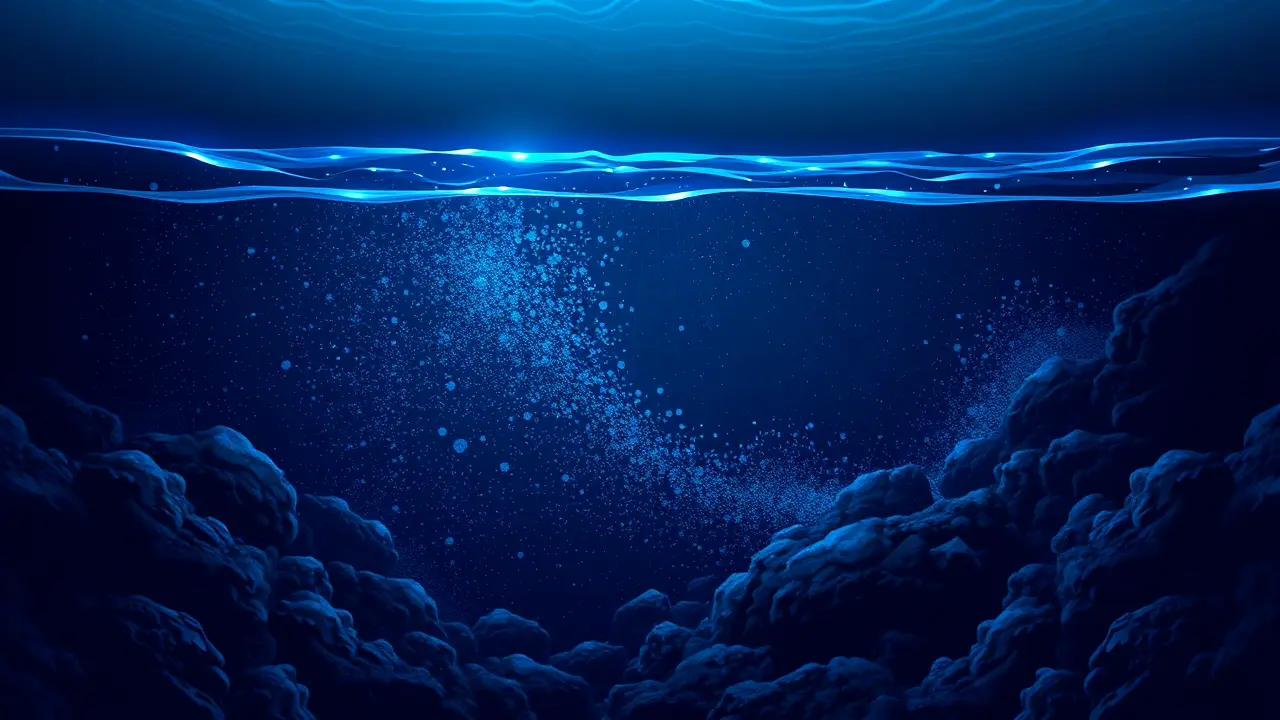
Scienceclimate scienceEnvironmental Policy
Deep-sea mining starves life in the ocean’s twilight zone
RA
Rachel Adams
10 hours ago7 min read2 comments
In the profound darkness of the ocean's twilight zone, a region stretching from 200 to 1000 meters below the surface where sunlight fades to perpetual gloom, a silent crisis is unfolding, one directly linked to humanity's latest frontier: deep-sea mining. Scientists have uncovered a devastating mechanism by which mining operations, which scrape the seabed for polymetallic nodules rich in cobalt and nickel, are generating vast sediment plumes that act as a nutritional vacuum.These plumes, billowing through the water column like underwater dust storms, are stripping away the vital, lipid-rich particles that constitute the marine snow—the constant shower of organic detritus from the sunlit surface layers that is the foundational food source for entire ecosystems. This natural sustenance, painstakingly built from phytoplankton and the remains of microscopic organisms, is being replaced by a cloud of nutrient-poor, mineral-laden sediment.The consequence is a catastrophic 'junk food' effect, where creatures from delicate filter-feeding larvaceans and gossamer-walled siphonophores to the myriad of crustaceans and fish that migrate vertically each night are forced to consume empty calories, leading to starvation and population collapse. This isn't merely a localized issue; the currents that govern the deep sea are global conveyors, meaning a mining plume in the Clarion-Clipperton Zone of the Pacific could starve life thousands of kilometers away, disrupting a carbon pump that has operated for millennia and sequestering vast amounts of atmospheric carbon dioxide.The parallels to terrestrial strip-mining are stark, but the scale of potential ecological ruin is arguably greater, affecting a realm we have only begun to understand. Renowned marine ecologist Dr.Samantha Leigh's recent work, published in *Nature Geoscience*, demonstrates that zooplankton exposed to simulated mining plumes show significantly reduced energy reserves and reproductive failure, a canary in the coal mine for the deep-sea food web. This research adds a critical, data-driven voice to the growing chorus of concern from organizations like the Deep-Ocean Stewardship Initiative, who argue that the regulatory framework for seabed mining, overseen by the International Seabed Authority, is racing ahead of robust environmental impact assessments.The very companies and nations poised to benefit from this extraction are gambling with a system that supports global fisheries and regulates our climate, a high-stakes wager where the chips are the survival of bioluminescent wonders and the stability of our planet's largest life-support system. The choice we face is not merely between minerals for batteries and pristine ecosystems, but between short-term technological gain and the long-term health of a global commons we cannot afford to lose.
#featured
#deep-sea mining
#ocean twilight zone
#marine ecosystems
#nutrient depletion
#environmental impact
#scientific research
Stay Informed. Act Smarter.
Get weekly highlights, major headlines, and expert insights — then put your knowledge to work in our live prediction markets.
© 2025 Outpoll Service LTD. All rights reserved.